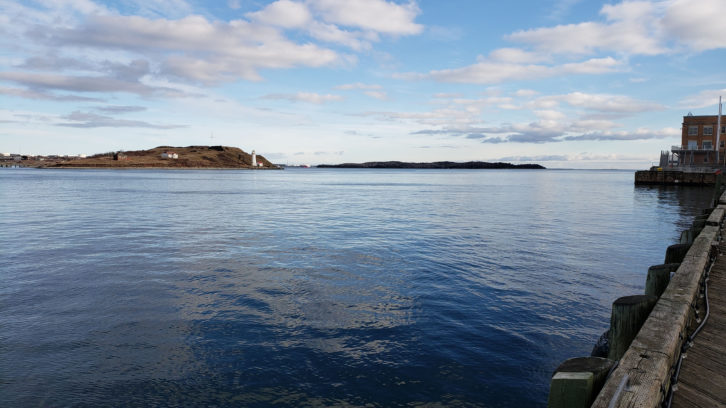Pandemic sinks cruise season in Halifax for second year
The last time cruise ships docked here was in 2019

caption
Conspicuously absent: cruise ship tourists would be seen here during a typical cruise season.The tourism industry in Halifax is bracing for another cancelled cruise season, after the federal government announced an additional year-long ban on cruises on Thursday.
The ban extends to Feb. 28, 2022, and is a response to the ongoing COVID-19 pandemic. It applies to cruise ships carrying more than 100 people in Canadian waters.
For Ambassatours Gray Line, cruise ship passengers arriving in Halifax accounted for about half of their business, said owner and chief executive officer Dennis Campbell.
“In my wildest imagination, I never, never would have imagined [the loss of the cruise seasons],” he said in an interview. Related stories
“You deal with what comes your way, just try to, you know, persevere and make the most of it.”
Campbell started Ambassatours 34 years ago. The company offers land and water sightseeing tours, such as the Harbour Hopper, and operates other harbourfront businesses, including Murphy’s on the Water.
“One of the biggest disappointments in [Thursday’s] news is the realization that we’re not able to hire back so many great people.”
In a normal year they hire about 370 seasonal employees; this year Ambassatours will only hire about 60, Campbell said.

caption
CEO of Ambassatours, Dennis Campbell, in front of a Harbour Hopper Tour Bus.Cruise ship season usually runs from May to October. In 2019, the last time cruise ships docked in Halifax, 179 vessels brought 323,709 guests, according to a Port of Halifax sustainability report.
Cruises are one of three business arms of the Port of Halifax, along with cargo shipments and real estate. Lane Farguson, spokesperson for the port, said cruises brought in $166 million in economic benefit to the region in 2019. This number captures tourist activities like tours and shopping, as well as food and fuel replenishment for the cruise vessels.
The seaport sees upwards of 1.2 million visitors in a typical year. Farguson said he didn’t know yet what the numbers were for 2020, but that it was “down significantly from normal years.”
In 2020, Ambassatours continued to offer boat tours with physical distancing and other health measures in place.
Campbell said there was some silver linings among the negative: the company started a ferry shuttle to Georges Island, a newly opened National Historic Site, and the service sold out within 48 hours for the entire season.

caption
Ambassatours offers ferry service in the summer to Georges Island, seen in the distance.“The local market was really good to support us and buy our boat tours, and go out and experience Halifax harbour and the Northwest Arm. So, we were very appreciative of the local market for that,” said Campbell. “It took away some of the sting for sure.”
The ferry to Georges Island will be offered again this season by Ambassatours.
Campbell said the wage subsidies, rent relief and other forms of government support have helped, but the tourism industry still needs more help because of how hard it has been hit.
Farguson said that while some businesses that serve the tourism economy won’t survive — such as the recently shuttered NovaScotian Crystal — the fundamentals of tourism remain strong in Nova Scotia.
He said it may take a few years to build the industry back up, but there’s a strong demand from cruises and tourists to return to Halifax and they have some bookings from cruises for 2022.
“We just need to get through this next year in order to get to where we want to be,” he said.
Travel and COVID-19
The federal government has advised Canadians against any cruise travel since March 2020.
In February and March of last year, the Canadian government repatriated citizens from outbreaks on two cruise ships: the Diamond Princess and the Grand Princess. Between those ships, there were more than 800 confirmed COVID-19 cases, according to a U.S. government report.
Currently, the federal government is advising Canadians against any non-essential travel and has closed Canada’s border to international travellers except those who meet certain eligibility requirements. All international travellers must take a COVID-19 test when arriving in Canada and quarantine for three days at a pre-approved hotel.
While Nova Scotia has eight active cases as of Sunday, according to the World Health Organization tracker, over 460,00 new cases were reported globally on Saturday.
About the author
Nicole Foussekis
Nicole Foussekis (she/her) lives and writes in Mohkinstsis, also known as Calgary, on Treaty 7 land in Alberta. She is an avid daydreamer and...

B
Bruce Bagnell